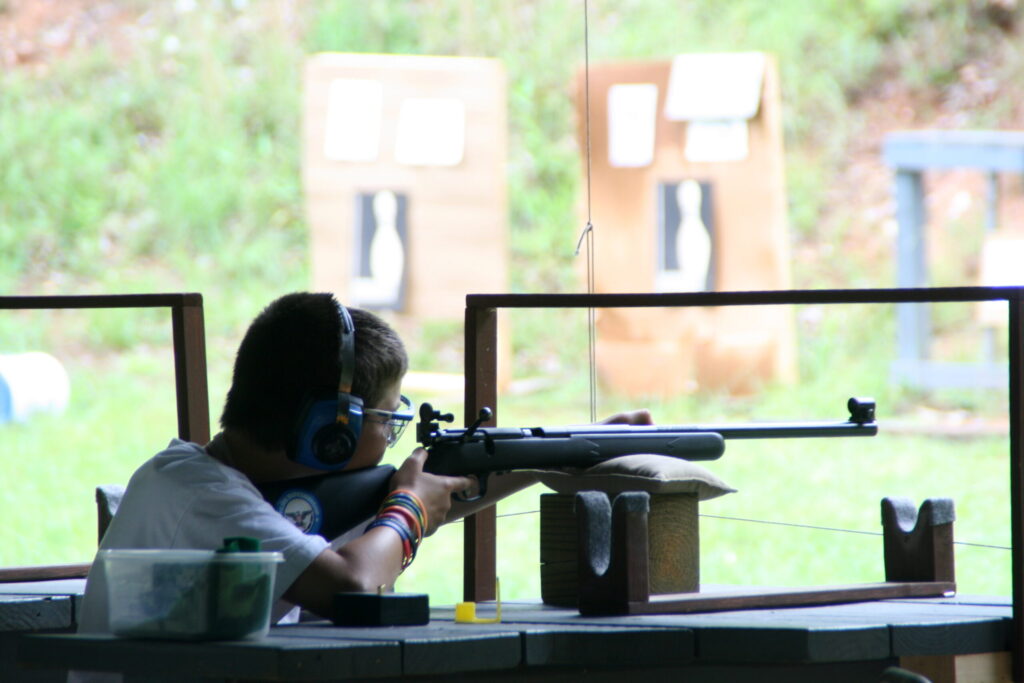
Image credit: “Woodruff Rifle Range-1” by johntrainor is licensed under CC BY 2.0.
The Firearms Act 2023 has received Royal Assent and when brought in to force, will introduce a number of regulatory and criminal law reforms.
Miniature Rifle Ranges
There is an exemption in firearms law (section 11(4) of the Firearms Act 1968) which allows a person to run a rifle range or shooting gallery where only small calibre rifles or air weapons are used without the need for a firearms licence. Additionally, members of the public do not need a firearms licence to shoot at such a range or gallery. This exemption is widely used to introduce people to target shooting.
Law enforcement has raised concerns that the exemption may allow unsuitable people to gain access to firearms, with consequent public safety risks. The Firearms Safety Consultation sought views on improving the controls on miniature rifle ranges while retaining the benefits that miniature rifle ranges present to shooting sports. The key proposal was that anyone who wishes to operate a miniature rifle range must apply for a firearms licence and undergo the necessary police checks into their background and security. 73% of those responding agreed or strongly agreed that the operator of a miniature rifle range should be required to have a firearm certificate, while 20% disagreed or strongly disagreed.
The new Act will require operators of miniature rifle ranges to possess a firearms licence so that they are subject to police suitability checks, and also to re-define a miniature rifle and thereby clarify which firearms are appropriate to be used by persons who have not been subject to any suitability checks. The intended effects are to increase public safety and to clarify the law in respect of the type of firearm used on miniature rifle ranges.
Ammunition
The key components of ammunition are the propellant and primer. The propellant helps to propel a projectile from a firearm by burning rapidly, while a primer consists of an explosive chemical compound that ignites the propellant. The remaining main components are the cartridge case and the projectile.
Although the key components are already controlled, and there are offences relating to the unlawful possession of complete ammunition, law enforcement has expressed concerns that these controls are not sufficient to prevent criminals from unlawfully manufacturing ammunition.
The Government accepted the view expressed that any legislation should be drafted in such a way that it does not inadvertently criminalise those who lawfully possess ammunition or component parts of it, and who do not intend to manufacture unauthorised rounds.
However, the government felt that it is also important that criminals should not be able to avoid prosecution by keeping the components in their unassembled state until such time as they are ready to be used and making it an offence to possess component parts with intent to assemble unauthorised quantities of ammunition is designed to enhance public safety.
While possession of all components would go towards proving criminal intent, making this a necessary condition of prosecution could be further exploited by criminals seeking a loophole.
The 2023 therefore creates a new offence of ‘Possessing component parts of ammunition with intent to manufacture’.
This makes it an offence if:
(a) the person has in their possession component parts of ammunition to which section 1 applies,
(b) the person intends to manufacture ammunition to which section 1 applies from the component parts, and
(c) were the person to do so it specifies that (i) possession of the ammunition by the person would constitute an offence under section 1 (restriction on possession of ammunition), or (ii) the manufacture or possession of the ammunition by the person would constitute an offence under section 3 (restrictions on business and other transactions with ammunition).
How can we help?
We ensure we keep up to date with any changes in legislation and case law so that we are always best placed to advise you properly. If you would like to discuss any aspect of your case, please contact any member of our vastly experienced Criminal Defence team, for assistance with any criminal law related matter.
–
Mr John Stokes (John.Stokes@danielwoodman.co.uk),
Mr Anthony Pearce (Anthony.Pearce@danielwoodman.co.uk) or
Mr Daniel Woodman (Daniel.Woodman@danielwoodman.co.uk).









